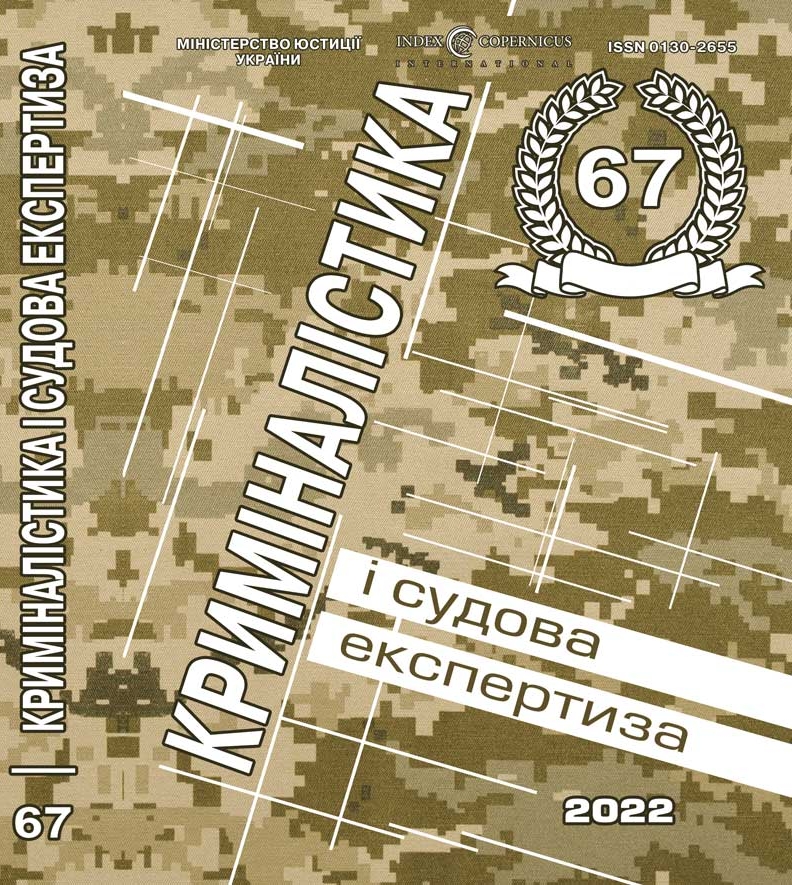
DOI: https://doi.org/10.33994/kndise.2022.67.65
I. Korostashova
The article is devoted to the generalization of approaches to forensic examinations (of expert research) in the field of intellectual property, in particular industrial designs. The analysis of the national legislation in the field of intellectual property is carried out and new approaches in the field of the legal protection of industrial designs are revealed.
The peculiarities of conducting forensic examinations (providing expert opinions) on determining the conditions of the legal protection of industrial designs, criteria for their legal protection, and volume of use have been researched.
An analysis of the conditions for granting legal protection to industrial designs, in particular compliance with public order and the principles of humanity and morality was performed. An analysis of normative sources that define the meaning of the term “public order” and regulations that should be used by a forensic expert to establish compliance of industrial designs with the principles of humanity and morality was performed.
The analysis of criteria for protection of industrial designs (novelty and individual character) was carried out. The peculiarities of determining the new criterion of the legal protection of industrial design (individual character) for the national legislation, for the assessment of which the “degree of freedom of the author” is taken into account, was established. The concept of “degree of freedom of the author” was studied and the features that should be taken into account during forensic examinations (of expert research) are determined.
Recommendations that should be taken into account by the subjects of appointment (order) of forensic examinations (of expert research) and forensic experts were formulated.
Key words: forensic examination, an object of intellectual property, industrial design, legal protection, conditions of legal protection, criteria of protection, public order, degree of freedom of the author.










